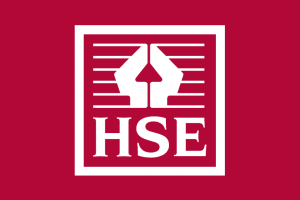Everything you need to know to ensure family businesses become more efficient

As we continue to focus on family businesses, John McCaffery, Tax Partner at Alexander & Co Chartered Accountants and Tax Advisors, gives his insight into what family businesses should be considering to help protect their wealth, grow their businesses and plan more efficiently.
John was a panelist on our recent The Future of Family Business Breakfast Event.
Family businesses add a unique dimension
All businesses face challenges at different points in their lifecycle. From recruiting and retaining talent, cashflow management and increasing competition through to profitability and economic cycles.
Whilst much of the issues discussed below will resonate with many businesses, these are always more salient where family businesses are concerned.

The family business event was held at The Castlefield Rooms
Business restructuring
Frequently, businesses are structured inefficiently having grown organically or having responded to a temporary situation. Restructuring provides an opportunity to address this and become more tax efficient. For family businesses, the structure of a business will need to take in to account what are often additional complex issues.
Business restructuring is often only considered as a reactive measure when something is wrong or needs fixing with a business. It can act as a useful exercise for any company to review their current structure and look for ways to improve efficiencies, both from a profit and a tax perspective.
For family businesses, it is important to ensure that a business is structured in a future proof way that protects family members within the business, but more importantly protects the future viability of the business.
Options include issuing different categories of shares or structuring a business in a way that founding or managing family members keep control, with other family members having the right to dividends, but not voting rights.
There are different routes available to achieve this, from establishing family trusts to setting up family investment companies. The latter provides full control over investment decisions and can offer tax efficiencies in preserving wealth for future generations.
Family investment companies were covered in more detail in a recent feature here.
Dealing with contributing and non-contributing family members
Many family businesses do not differentiate between the treatment and ownership of contributing and non-contributing family members. Sometimes it is assumed that all children will inherit a business, regardless of whether they actively participate in the business or not.
Family businesses should consider rewarding contributory members additionally for their active stake in the business when they reach senior level, as other employers would for directors or partners. This will help reduce conflict.
Where members of the family do not actively contribute to the business, thought needs to be given to their stake in the business and their future entitlement to the business.
Often, family members joining a business suddenly can lead to problems and conflict within the business. Structuring or restructuring a business to take account of these matters will ensure the business can be as robust as possible.
Succession planning and business protection
At some point, family members will want to exit their business and typically pass the business on to the next generation. As is the case for many businesses, when this is not planned, it can become problematic and effect business productivity.
Not having a structured exit plan can throw up a wide range of issues, including extracting funds out of the business in a tax efficient manner.
This is also the case if a business owner was to die suddenly, leading to family and potential legal issues. When people are grieving, they often are not thinking rationally, which can further complicate matters and affect their business.
Ensuring there is an up-to-date succession plan in place will provide a business and its shareholders/stakeholders with reassurance. It will ensure that when the time comes for a family business to pass control to a different person or down to a different generation, this can be undertaken as smoothly as possible, without affecting the day-to-day operation of the business.
Inheritance tax planning
Intricately linked to succession planning is inheritance tax planning.
This is something that all business owners should consider early. The last 18 months has brought this to the focus of many, not only in making sure that plans are in place, but also in how business owners are now considering what they want out of their business and how to enjoy it.
Having a well-executed, up to date will in place is essential, but this is only part of the story. Inheritance tax planning ensures that you are looking after your assets in the most tax efficient way, and protecting them both for yourself, your family and your beneficiaries.
Inheritance tax planning should not just be about what happens with your business and wider estate when you die, you should also consider how you want to use and enjoy your wealth now and for the future.
There are many ways in which inheritance tax can be reduced, if not removed completely. This can include the use of trusts, discounted gift trusts, family investment companies, lifetime gifts and pensions. Many family-run companies can also rely on 100% inheritance tax relief under Business Property Relief (BPR), if structured correctly.
Other issues to consider – directors’ loans Directors’ loans or shareholder loans are frequently used by many businesses. For family businesses, often where there is less structure and lending is more commonplace between a business and a family member, these are more frequently used (even if this is on an informal basis).
Wherever these are used, tax consequences may also arise.
These loans make it possible to borrow up to £10,000 from a company for up to 21 months without tax being liable on the amount borrowed. If the loan becomes greater than £10,000, interest needs to be charged at the official rate (currently 2%) or there will be a benefit-in-kind, which can incur tax.
Do bear in mind a company bears most of the responsibilities when issuing these loans and corporation tax can be due at 32.5% if not repaid within the prescribed timeframe.
Notwithstanding this, with careful planning and professional advice, loans are a useful mechanism for family businesses.
Efficiently run family businesses
With the unique challenges family businesses bring, managing them and advising family businesses requires a different approach. Whilst there is much more to consider at a strategic level, with proactive management, structuring and tax planning, family businesses have the potential to excel and remain robust for many generations to come.
With around 88% of businesses in the UK defined as family businesses, many with a long history, this is testimony of their innovation and longevity, when managed well.








